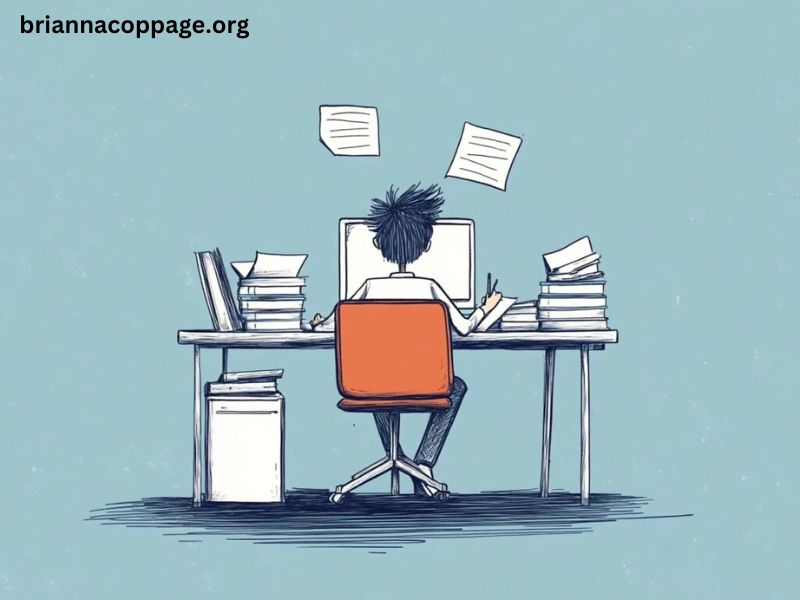In today’s fast-paced work environment, we all have those days when we simply cannot face another meeting, project, or deadline. Whether it’s due to stress, personal issues, or just a need for a mental health day, knowing how to communicate your need for a break can be essential. While honesty is often the best policy, there are times when having a few well-crafted excuses can save the day. Here, we explore some effective and considerate excuses to get out of work, while also emphasizing the importance of maintaining professionalism and trust in the workplace.
Understanding the Need for Time Off
Before diving into the excuses themselves, it’s crucial to recognize that everyone needs a break from time to time. Stress, burnout, and personal matters can all weigh heavily on an employee’s performance and overall well-being. Taking a day off to recharge is not only acceptable but often necessary. However, it’s vital to handle the situation with care to avoid damaging your reputation or relationships at work.
The Importance of Context
The effectiveness of an excuse often depends on the workplace culture, your relationship with your employer, and the frequency with which you take time off. It’s essential to be mindful of your history at the company. If you’ve built a reputation for reliability, a well-timed excuse may be more readily accepted than if you’re known for taking frequent absences.
Top Excuses for Getting Out of Work
Here are several bulletproof excuses that can be utilized depending on your situation:
1. Medical Appointment
One of the most universally accepted excuses is to claim a medical appointment. This excuse is often non-negotiable and respected by employers. You don’t need to provide details about the appointment itself, just the fact that you have one. This can range from routine check-ups to dental visits or specialist consultations.
Tip: Schedule your appointments in advance to ensure they coincide with work hours and provide your employer with as much notice as possible.
2. Illness
Feeling under the weather is a legitimate reason to stay home. This excuse works particularly well if you are contagious or suffering from symptoms that would affect your productivity. It’s essential to communicate this clearly but without oversharing.
Tip: A brief message indicating you’re unwell and need to take a sick day is often sufficient. If possible, offer to check emails periodically to show your commitment to your responsibilities.
3. Family Emergency
Family emergencies can range from urgent health issues to unforeseen circumstances that require your immediate attention. Most employers will understand the importance of family and will likely grant you the time needed to handle the situation.
Tip: Keep it vague. You don’t need to disclose every detail; a simple statement indicating a family matter requiring your attention will suffice.
4. Mental Health Day
Increasingly, workplaces are beginning to recognize the importance of mental health. If you feel overwhelmed or burnt out, taking a mental health day is becoming more accepted. However, it may be wise to approach this topic carefully, especially in more traditional work environments.
Tip: Frame it as a day to recharge. You can say you’re feeling particularly stressed and need a day to gather your thoughts.
5. Car Trouble
Car troubles are a classic excuse that many people can relate to. Whether it’s a flat tire, a dead battery, or a broken-down vehicle, these issues often arise unexpectedly.
Tip: If you use this excuse, ensure you have a backup plan for getting to work if needed, and provide an estimated time of resolution if possible.
6. Child Care Issues
For parents, child care can often become a pressing issue. If your usual arrangements fall through, it’s a valid reason to miss work. Most employers understand that family responsibilities can sometimes interfere with work commitments.
Tip: Communicate early, and offer to catch up on work when you’re back.
7. Home Repair Emergencies
Home repair emergencies, like a burst pipe or electrical failure, can require immediate attention and are often considered acceptable reasons for missing work.
Tip: Inform your employer that you need to be home to deal with an urgent situation. You can also suggest working from home if feasible.
8. Urgent Errands
Sometimes, we have essential errands that cannot wait, such as legal matters, bank issues, or other time-sensitive tasks. These can serve as legitimate excuses if handled appropriately.
Tip: Be honest about the urgency and plan to manage your workload around this commitment.
9. Volunteering or Community Service
If you’re involved in volunteer work or community service, especially if it’s something you’re passionate about, this can be a compelling reason to take a day off. Many employers respect employees who engage in community-oriented activities.
Tip: Let your employer know how this experience aligns with your values and contributes to your well-being.
10. Travel or Relocation Issues
If you’re moving homes or dealing with travel-related complications (such as flight cancellations or unexpected delays), this is another valid excuse for needing time off.
Tip: Provide details about the situation without going overboard, and express your willingness to make up for lost work.
Crafting Your Message
Regardless of the excuse you choose, how you communicate it is crucial. Here are some tips for crafting your message:
- Be Direct and Honest: Avoid over-explaining. A concise message stating your reason and your intention to return is often sufficient.
- Use the Appropriate Channels: Whether it’s an email, a message, or a phone call, make sure you’re using the right communication method as per your workplace norms.
- Offer to Help: If feasible, express your willingness to assist with any urgent matters remotely or make up for lost time.
- Follow Up: If your absence extends beyond a day, keep your employer updated on your status and your expected return.
When Not to Use Excuses
While it’s tempting to use excuses to avoid work, it’s essential to avoid frequent or blatant dishonesty. Constantly using excuses can damage your reputation, lead to distrust, and potentially result in disciplinary action. Here are some things to avoid:
- Lying About Major Illnesses: Fabricating serious illnesses can backfire, especially if you’re required to provide documentation.
- Using the Same Excuse Repeatedly: Consistency is key, but using the same excuse too often can raise red flags.
- Overly Elaborate Stories: Keep your excuses simple and believable. Complicated stories can lead to inconsistencies and further complications.
Conclusion
Having a few bulletproof excuses at your disposal can be beneficial when you genuinely need time off. However, it’s important to balance this with a commitment to honesty and professionalism in the workplace. Remember, while these excuses can help you navigate challenging situations, they should be used sparingly and responsibly to maintain trust and credibility with your employer. In the end, taking care of your well-being should always come first, and it’s perfectly acceptable to prioritize your health and happiness—both mental and physical.






